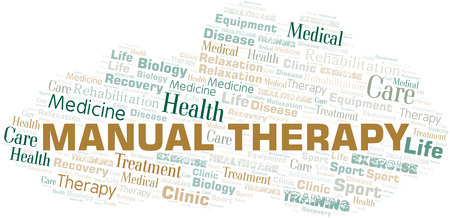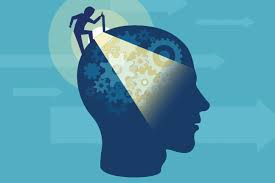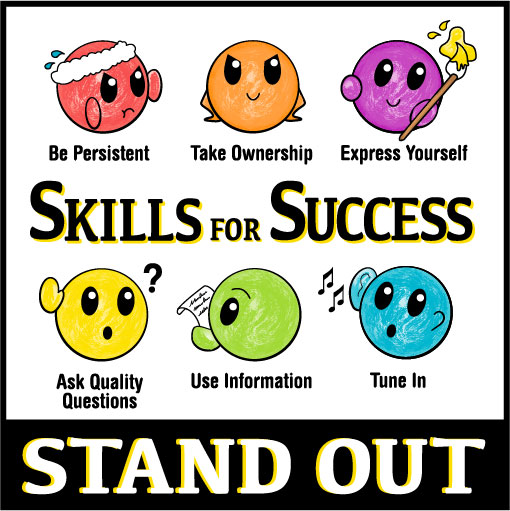
Student Excellence Certifications 1st Year BPT

Description
Course content
Bachelor of Physiotherapy (BPT) First Year
A] APPLIED ANATOMY
Minimum hours: Theory-80 Hrs., Practical-40 Hrs.
1. General Anatomy:
2. Musculoskeletal system.
3.Spine and thorax
4.Central nervous system
5. Cardiovascular system
6. Lymphatic system
7. Respiratory system
8. Digestive system
9. Urinary and Reproductive system
10. Endocrine system
B] APPLIED PHYSIOLOGY
Minimum Hours: Theory-60 Hrs., Practical-20 Hrs.
1. General Physiology
2. Blood
3. Cardiovascular system
4. Respiratory System
5. Nerve Muscle Physiology
6. Nervous system
7. Renal System
8. Digestive System
9. Gastrointestinal secretions & their regulation
10. Endocrinology
.
C] CLINICAL BIOCHEMISTRY
Minimum Hours: 60 Hrs.
1. Nutrition.
2. Carbohydrates
3. Lipids
4. Amino Acids
5. Proteins
6. Study of hemoglobin and myoglobin with their functions.
7. Enzymes
8. Biochemistry of connective
9. Vitamins
10. Diabetes mellitus
D] GENERAL PSYCHOLOGY & Sociology
Min. Hours: 40 Hrs.+ 40 Hours. = 80 hours.
1. Introduction to Psychology
2. Learning – theories and principles of learning, Learning disabilities.
3. Memory – types, theories of memory and forgetting, methods to improve
memory.
4. Thinking – process of thinking, problem solving, decision making and creative thinking.
5. Motivation - theories and types of Motivation.
6. Emotions - theories of emotions and stress, Emotional and behavioral disorders
of childhood and adolescence, Disorders of under and over controlled behavior,
Eating disorders.
7. Attitudes – theories, attitudes and behavior, factors in attitude change.
8. Intelligence - theories of intelligence, I.Q., general intelligence and special
intelligence, intelligence tests and their uses.
9. Personality- theories of personality, factors influencing personality, Personality
Disorders.
10. Conflict and frustration - Common defensive mechanism : Identification,
regression, repression, projection, sublimation and rationalization.
11. Attention and Perception : Nature of attention, factors determining attention,
nature of perception, principle of perceptual grouping; illusions and
Hallucination.
12. Counseling - Aims and principles.
13. Development and growth of behavior- in infancy and childhood, adolescence,
adulthood and old age, normal and abnormal.
14. Psychotherapy – introduction to paradigms in psychopathology and therapy.
15. Mental deficiency - a) Mental retardation, b) Autistic behavior
c) Learning disabilities.
SECTION:B- SOCIOLOGY
Course Contents:-
A-Introduction
1. Meaning-Definition and scope of Sociology
2. Its relation with Anthropology, Psychology, Social Psychology and ethics.
3. Methods of Sociology-case study, Social Survey, Questionnaire, interview and opinion poll methods.
4. Importance of its study with special reference to health care professionals.
B-Social Factors in Health and Disease:
1. The meaning of Social Factors.
2. The role of Social factors and illness.
C-Socialization:
1. Meaning and nature of Socialization.
2. Primary, Secondary, and Anticipatory Socialization.
3. Agencies of Socialization.
D. Social Groups:
1. Concepts of social groups.
2. Influence of formal and informal groups on health and sickness.
3. The roll of primary groups and secondary groups in the hospital and rehabilitation settings.
E- Family:
1. The family - Meaning and definition, Functions
2. Changing family Patterns
3. Influence of family on the individual health, family, and nutrition.
4. The effects of sickness on family and psychosomatic disease and their importance to Physiotherapy
F-Community:
1. Rural community – Meaning and features – Health hazards of rural population
2. Urban community – Meaning and features – Health hazards of urban population
G-Culture and Health:
1. Concept of culture
2. Cultures and Behaviour
3. Cultural meaning of sickness
4. Culture and health disorders
H-Social change:
1. Meaning of social changes & Factors of social change.
2. Human adaptation and social change.
3. Social change and stress.
4. Social and deviance.
5. Social change and health Program.
6. The role of social planning in the improvement of health and in rehabilitation.
I-Social problems of disabled: Consequences of the following social problems in relation to sickness and Disability, remedies to
prevent these problems
1. Population explosion.
2. Poverty and unemployment.
3. Beggary.
4. Juvenile delinquency.
5. Prostitution.
6. Alcoholism.
7. Problems of women in employment.
J-Social security: Social security and social legislation in relation to the Disabled.
K-Social worker: Meaning of social work; the role of a medical social worker.
E ] Basic Physiotherapy . -Bio mechanical and Bio- electrical Modalities.
Min.Teaching hours: 100 hours.
Course Contents:
All topics are for a brief description only
A] BIOMECHANICAL MODALITIES.
1. Mechanics - Definition of mechanics and Biomechanics
2. Force - Definition, diagrammatic representation, classification of forces, concurrent, coplanar
and co-linear
forces, composition and resolution of forces, angle of pulls of muscle
MADHYAPARDESH MEDICAL SCIENCE UNIVERSITY, JABALPUR (M.P.)
21 | P a g e
3. Momentum - principles, and practical application
4. Friction
5. Gravity - Definition, line of gravity, Centre of gravity
6. Equilibrium - Supporting base, types, and equilibrium in static and dynamic state
7. Levers - Definition, function, classification and application of levers in physiotherapy & order
of levers with example of lever in human body
8. Pulleys - system of pulleys, types and application
9. Elasticity - Definition, stress, strain, HOOKE’S Law
10. Springs - properties of springs, springs in series and parallel, elastic materials in use
11. Aims and scope of various biomechanical modalities – shoulder wheel, shoulder ladder,
shoulder pulleys,
pronator-supinator instrument, static cycle, rowing machine, ankle exerciser, balancing board,
springs, weights
12. Normal Posture - definition & description, static and dynamic, alignments of various joints,
centre of gravity, planes & muscular moments, and Analysis of posture
13. Movements - Anatomical definition and description, Movements and exercise as therapeutic
modality and their effects, Physiological reaction of exercise
14. Traction - Rationale, Technique, indications & contra-indications
15. Normal Gait - definition & description, alignments, centre of gravity during gait cycle, planes
& muscle acting mechanisms, pattern, characteristics Normal gait cycle, time & distance
parameters, & determinants of Gait
16. Starting positions - Description and muscle work, Importance of fundamental and derived
types, Effects and uses of individual positions
17. Soft tissue manipulation - History, definition, types and their rationale, general effects, local
effects of individual manipulation (physiological effects) and uses, contra-indications and
techniques of application
Section – B: FUNDAMENTALS OF MEDICAL ELECTRONICS & MAGNETISM
Basic Electronics.
1 Currents 2. Capacitors
3. Effects of electric Current: Thermal effect, chemical effect (ionization) and magnetic effect.
Electric shock, Earth shock, causes and its prevention
4. Magnetism.
Electronic Devices
1. Thermionic Valves: Thermionic emission, Diode and Triode valves and their characteristics,
Construction and application of Cathode Ray Oscilloscope
2. Semiconductor Devices: Intrinsic and extrinsic semiconductors, advantages of diode and
transistors devices.
Basing of Diode and their characteristics, Light Emitting Diodes, integrated circuits, Advantage
of semiconductor devices over thermionic valve
3. Electronic Circuits: Rectifiers, Wheat stone bridge & smoothing circuits,Oscillators and its
types.
4. A.C. AND D.C. meters: Functions and applications of Ammeter and volt meters, Ohmmeters,
5. Introduction to Therapeutic Energies – Thermal, Mechanical, Electrical, Electromagnetic and
magnetic -
Definition, description, Electromagnetic spectrum, physiological effects, pathological effects and
dangers
Section – C: Bioelectrical Modalities
6. Medical Instrumentation For Physical Therapy: Brief description of generation, circuit
diagrams and testing
7. Low frequency currents, Direct currents
8.Medium frequency currents
9. Short wave Diathermy-continuous and pulsed
10. Microwave Diathermy
11. Ultrasound
12. Actino-therapy – Infrared- Types of generators , UVR-generators , types, dosimetery and
LASER- Productions & instrumentation, classification and physiological effects.
Teaching, structure and assessment
This course runs through one year and is delivered through a combination of Online,face-to-face lectures, workshops and seminars. There’ll also be online learning tests which you’ll need to complete.
Learning Outcomes:
Student Excellence Certification Course BPT-1ST YEAR.
On successful completion of the course students will be able to:
Demonstrate sufficient understanding of knowledge in Physiotherapy.
1. Able to integrate theoretical knowledge with Practical assessment.
2 Develop the ability to collect history, perform relevant Practical assessment.
3. Effectively deliver appropriate preventative and educational outcomes.
4. Communicate effectively verbally, non-verbally and in written and electronic forms.
5. Demonstrate appropriate professional behaviour and attitudes.
Bachelor of Physiotherapy (BPT) First Year
A] APPLIED ANATOMY
Minimum hours: Theory-80 Hrs., Practical-40 Hrs.
1. General Anatomy:
2. Musculoskeletal system.
3.Spine and thorax
4.Central nervous system
5. Cardiovascular system
6. Lymphatic system
7. Respiratory system
8. Digestive system
9. Urinary and Reproductive system
10. Endocrine system
B] APPLIED PHYSIOLOGY
Minimum Hours: Theory-60 Hrs., Practical-20 Hrs.
1. General Physiology
2. Blood
3. Cardiovascular system
4. Respiratory System
5. Nerve Muscle Physiology
6. Nervous system
7. Renal System
8. Digestive System
9. Gastrointestinal secretions & their regulation
10. Endocrinology
.
C] CLINICAL BIOCHEMISTRY
Minimum Hours: 60 Hrs.
1. Nutrition.
2. Carbohydrates
3. Lipids
4. Amino Acids
5. Proteins
6. Study of hemoglobin and myoglobin with their functions.
7. Enzymes
8. Biochemistry of connective
9. Vitamins
10. Diabetes mellitus
D] GENERAL PSYCHOLOGY & Sociology
Min. Hours: 40 Hrs.+ 40 Hours. = 80 hours.
1. Introduction to Psychology
2. Learning – theories and principles of learning, Learning disabilities.
3. Memory – types, theories of memory and forgetting, methods to improve
memory.
4. Thinking – process of thinking, problem solving, decision making and creative thinking.
5. Motivation - theories and types of Motivation.
6. Emotions - theories of emotions and stress, Emotional and behavioral disorders
of childhood and adolescence, Disorders of under and over controlled behavior,
Eating disorders.
7. Attitudes – theories, attitudes and behavior, factors in attitude change.
8. Intelligence - theories of intelligence, I.Q., general intelligence and special
intelligence, intelligence tests and their uses.
9. Personality- theories of personality, factors influencing personality, Personality
Disorders.
10. Conflict and frustration - Common defensive mechanism : Identification,
regression, repression, projection, sublimation and rationalization.
11. Attention and Perception : Nature of attention, factors determining attention,
nature of perception, principle of perceptual grouping; illusions and
Hallucination.
12. Counseling - Aims and principles.
13. Development and growth of behavior- in infancy and childhood, adolescence,
adulthood and old age, normal and abnormal.
14. Psychotherapy – introduction to paradigms in psychopathology and therapy.
15. Mental deficiency - a) Mental retardation, b) Autistic behavior
c) Learning disabilities.
SECTION:B- SOCIOLOGY
Course Contents:-
A-Introduction
1. Meaning-Definition and scope of Sociology
2. Its relation with Anthropology, Psychology, Social Psychology and ethics.
3. Methods of Sociology-case study, Social Survey, Questionnaire, interview and opinion poll methods.
4. Importance of its study with special reference to health care professionals.
B-Social Factors in Health and Disease:
1. The meaning of Social Factors.
2. The role of Social factors and illness.
C-Socialization:
1. Meaning and nature of Socialization.
2. Primary, Secondary, and Anticipatory Socialization.
3. Agencies of Socialization.
D. Social Groups:
1. Concepts of social groups.
2. Influence of formal and informal groups on health and sickness.
3. The roll of primary groups and secondary groups in the hospital and rehabilitation settings.
E- Family:
1. The family - Meaning and definition, Functions
2. Changing family Patterns
3. Influence of family on the individual health, family, and nutrition.
4. The effects of sickness on family and psychosomatic disease and their importance to Physiotherapy
F-Community:
1. Rural community – Meaning and features – Health hazards of rural population
2. Urban community – Meaning and features – Health hazards of urban population
G-Culture and Health:
1. Concept of culture
2. Cultures and Behaviour
3. Cultural meaning of sickness
4. Culture and health disorders
H-Social change:
1. Meaning of social changes & Factors of social change.
2. Human adaptation and social change.
3. Social change and stress.
4. Social and deviance.
5. Social change and health Program.
6. The role of social planning in the improvement of health and in rehabilitation.
I-Social problems of disabled: Consequences of the following social problems in relation to sickness and Disability, remedies to
prevent these problems
1. Population explosion.
2. Poverty and unemployment.
3. Beggary.
4. Juvenile delinquency.
5. Prostitution.
6. Alcoholism.
7. Problems of women in employment.
J-Social security: Social security and social legislation in relation to the Disabled.
K-Social worker: Meaning of social work; the role of a medical social worker.
E ] Basic Physiotherapy . -Bio mechanical and Bio- electrical Modalities.
Min.Teaching hours: 100 hours.
Course Contents:
All topics are for a brief description only
A] BIOMECHANICAL MODALITIES.
1. Mechanics - Definition of mechanics and Biomechanics
2. Force - Definition, diagrammatic representation, classification of forces, concurrent, coplanar
and co-linear
forces, composition and resolution of forces, angle of pulls of muscle
MADHYAPARDESH MEDICAL SCIENCE UNIVERSITY, JABALPUR (M.P.)
21 | P a g e
3. Momentum - principles, and practical application
4. Friction
5. Gravity - Definition, line of gravity, Centre of gravity
6. Equilibrium - Supporting base, types, and equilibrium in static and dynamic state
7. Levers - Definition, function, classification and application of levers in physiotherapy & order
of levers with example of lever in human body
8. Pulleys - system of pulleys, types and application
9. Elasticity - Definition, stress, strain, HOOKE’S Law
10. Springs - properties of springs, springs in series and parallel, elastic materials in use
11. Aims and scope of various biomechanical modalities – shoulder wheel, shoulder ladder,
shoulder pulleys,
pronator-supinator instrument, static cycle, rowing machine, ankle exerciser, balancing board,
springs, weights
12. Normal Posture - definition & description, static and dynamic, alignments of various joints,
centre of gravity, planes & muscular moments, and Analysis of posture
13. Movements - Anatomical definition and description, Movements and exercise as therapeutic
modality and their effects, Physiological reaction of exercise
14. Traction - Rationale, Technique, indications & contra-indications
15. Normal Gait - definition & description, alignments, centre of gravity during gait cycle, planes
& muscle acting mechanisms, pattern, characteristics Normal gait cycle, time & distance
parameters, & determinants of Gait
16. Starting positions - Description and muscle work, Importance of fundamental and derived
types, Effects and uses of individual positions
17. Soft tissue manipulation - History, definition, types and their rationale, general effects, local
effects of individual manipulation (physiological effects) and uses, contra-indications and
techniques of application
Section – B: FUNDAMENTALS OF MEDICAL ELECTRONICS & MAGNETISM
Basic Electronics.
1 Currents 2. Capacitors
3. Effects of electric Current: Thermal effect, chemical effect (ionization) and magnetic effect.
Electric shock, Earth shock, causes and its prevention
4. Magnetism.
Electronic Devices
1. Thermionic Valves: Thermionic emission, Diode and Triode valves and their characteristics,
Construction and application of Cathode Ray Oscilloscope
2. Semiconductor Devices: Intrinsic and extrinsic semiconductors, advantages of diode and
transistors devices.
Basing of Diode and their characteristics, Light Emitting Diodes, integrated circuits, Advantage
of semiconductor devices over thermionic valve
3. Electronic Circuits: Rectifiers, Wheat stone bridge & smoothing circuits,Oscillators and its
types.
4. A.C. AND D.C. meters: Functions and applications of Ammeter and volt meters, Ohmmeters,
5. Introduction to Therapeutic Energies – Thermal, Mechanical, Electrical, Electromagnetic and
magnetic -
Definition, description, Electromagnetic spectrum, physiological effects, pathological effects and
dangers
Section – C: Bioelectrical Modalities
6. Medical Instrumentation For Physical Therapy: Brief description of generation, circuit
diagrams and testing
7. Low frequency currents, Direct currents
8.Medium frequency currents
9. Short wave Diathermy-continuous and pulsed
10. Microwave Diathermy
11. Ultrasound
12. Actino-therapy – Infrared- Types of generators , UVR-generators , types, dosimetery and
LASER- Productions & instrumentation, classification and physiological effects.
Teaching, structure and assessment
This course runs through one year and is delivered through a combination of Online,face-to-face lectures, workshops and seminars. There’ll also be online learning tests which you’ll need to complete.
Learning Outcomes:
Student Excellence Certification Course BPT-1ST YEAR.
On successful completion of the course students will be able to:
Demonstrate sufficient understanding of knowledge in Physiotherapy.
1. Able to integrate theoretical knowledge with Practical assessment.
2 Develop the ability to collect history, perform relevant Practical assessment.
3. Effectively deliver appropriate preventative and educational outcomes.
4. Communicate effectively verbally, non-verbally and in written and electronic forms.
5. Demonstrate appropriate professional behaviour and attitudes.
Product rating
Customer Reviews
There have been no reviews for this product.
Add your review here


![Myo-electric hand [B.E] External Power/Myo-electric Myo-electric hand [B.E] External Power/Myo-electric](http://www.ccdr.co.in/images/T/myoelectric-hand-150.jpg)
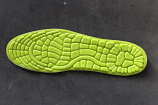
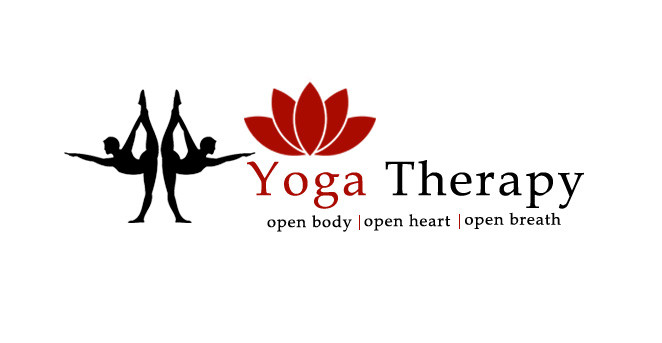


![4 DAYS COURSE ON CERTIFICATE IN MANUAL THERAPY [C.M.T] - JAMMU 4 DAYS COURSE ON CERTIFICATE IN MANUAL THERAPY [C.M.T] - JAMMU](http://www.ccdr.co.in/images/T/manual%20therapy%20side-06.jpg)
